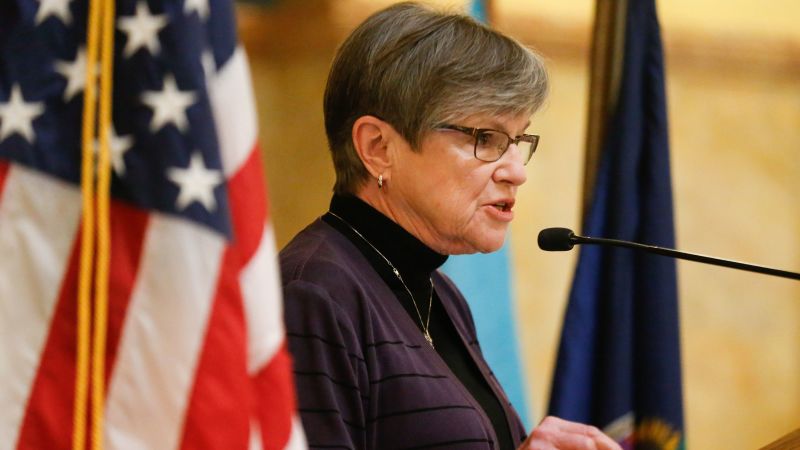Kansas Democratic Gov. Laura Kelly vetoed a ban on gender-affirming care for minors, citing concerns about trampling parental rights and interfering with medical care decisions. The measure now goes back to the state Legislature, where the GOP majority is likely to override the veto during an upcoming session. This move is part of a larger trend in at least 20 states to restrict gender-affirming care for minors, with arguments from both parties about protecting children’s rights or transgender rights.
The bill in question would prohibit gender-affirming care for trans and nonbinary youth in Kansas, including puberty blockers and surgeries, with potential consequences for doctors who continue to provide such care. It also includes provisions to prevent the use of state funds to promote these treatments and to restrict state employees from recognizing a minor’s preferred pronouns if they differ from their assigned sex at birth. This bill is seen as an expansion of previous efforts by the GOP-controlled Legislature to limit transgender rights in the state.
Kansas Democrats have criticized the bill for infringing on transgender rights, while state Republicans argue that it is necessary to protect children. The issue has become a polarizing one nationally, with similar measures being passed in other states. Last year, Kansas lawmakers overrode another veto by the governor to enact an anti-trans sports ban, which prohibits transgender women and girls from competing on sports teams according to their gender identity.
Despite the governor’s veto, there is enough support in the state Legislature to potentially override it during an upcoming session. This would mean that the ban on gender-affirming care for minors could still go into effect in Kansas. The bill has faced significant opposition and has sparked debates about parental rights, medical decisions, and the rights of transgender individuals.
With the bill’s passage, Kansas joins a growing number of states that have implemented restrictions on gender-affirming care for minors. The issue has become a key focus for the Republican Party, with arguments about protecting children’s well-being and societal norms. However, opponents argue that such measures infringe on the rights of transgender individuals and interfere with medical care decisions that should be made by families and healthcare providers.


